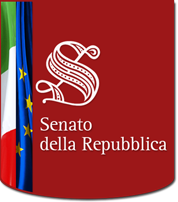Committees
Standing Committees [so called because they are permanent bodies and are not established from time to time to consider individual measures] reflect the size of Parliamentary Groups and their members are appointed by each Parliamentary Group.
Within five days of being established, each Group assigns its members to each of the Standing Committees, informing the President of the Senate [an exemption is granted to the 14th Committee, on EU Affairs].
Each Committee has legislative and non-legislative responsibility for one or more sectors, corresponding to the activities of one or more executive departments.
The Senate Standing Committees are numbered from 1 to 14, with responsibility for the following subject matters:
- 1 Constitutional Affairs, Affairs of the Office of the Prime Minister, Home Affairs, Organisation of the State and the Civil Service;
- 2 Judiciary;
- 3 Foreign Affairs, Emigration;
- 4 Defence;
- 5 Economic Planning, Budget;
- 6 Finance and Treasury;
- 7 Education, Cultural Property, Scientific Research, Entertainment, Industry and Sport;
- 8 Public Works, Communications;
- 9 Agriculture and Food Production;
- 10 Industry, Trade, Tourism;
- 11 Labour, Social Security;
- 12 Health;
- 13 Environment, Environmental Properties and the Land;
- 14 European Union Policies [established in 2003 following the transformation of the Select Committee on the European Communities].
Special Committees are established following a decision of the Assembly to scrutinise particular bills. Their composition reflects the size of Parliamentary Groups.
Committees of enquiry have the same powers and limitations as the judiciary, and are established to investigate matters of public interest. They are established by Act of Parliament or by a resolution of the Senate.
Joint Committees are created by virtue of constitutional provisions or by law. They are advisory or oversight bodies, which issue guidelines and hold the Government to account. They comprise senators and deputies.
The Committee on the Library and Historical Archives is composed of three senators and is responsible for managing the Senate Library and Historical Archives.






